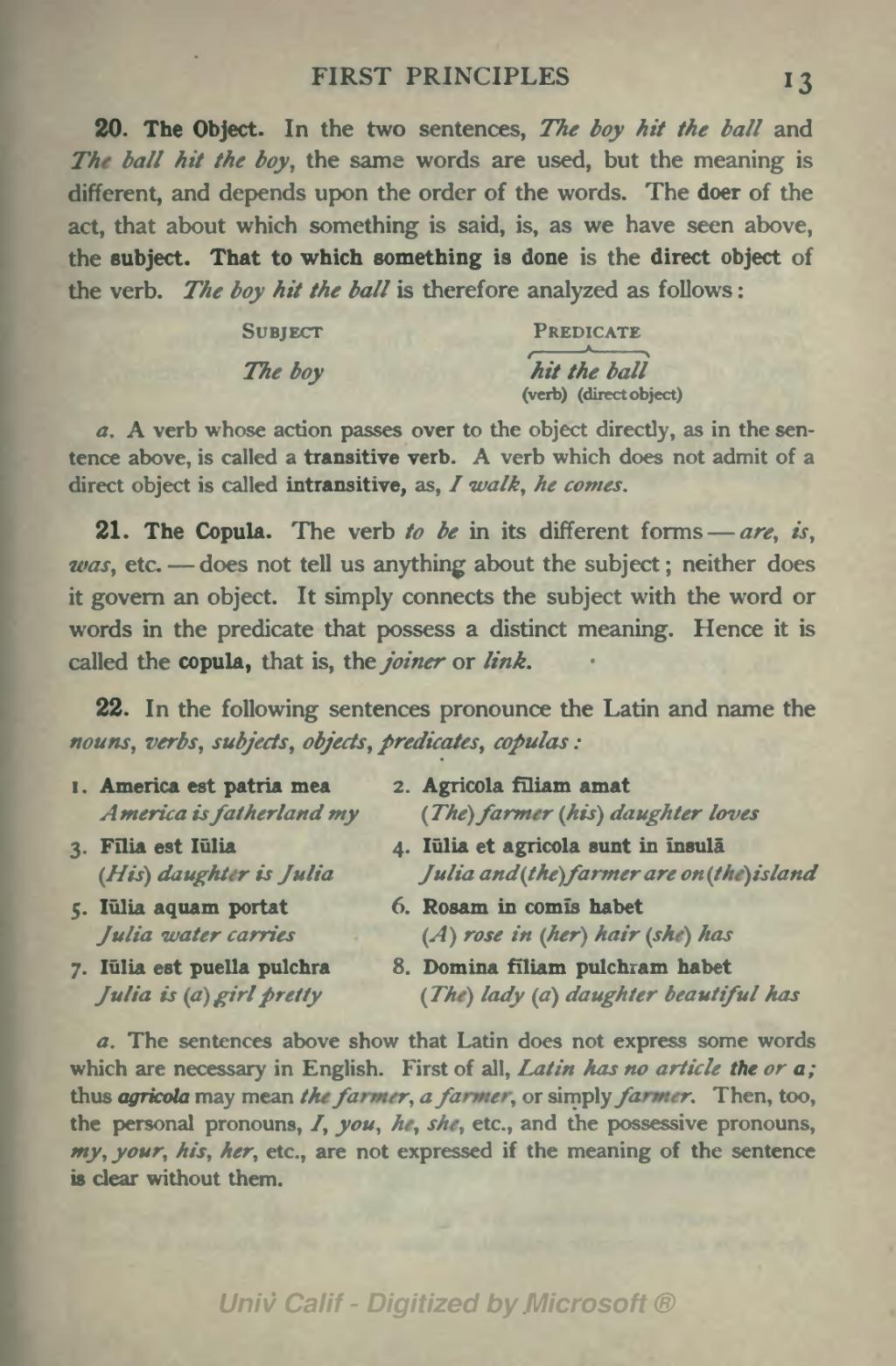20. The Object. In the two sentences, The boy hit the ball and The ball hit the boy, the same words are used, but the meaning is different, and depends upon the order of the words. The doer of the act, that about which something is said, is, as we have seen above, the subject. That to which something is done is the direct object of the verb. The boy hit the ball is therefore analyzed as follows:
| Subject | Predicate |
| The boy | hit the ball |
| (verb) (direct object) |
a. A verb whose action passes over to the object directly, as in the sentence above, is called a transitive verb. A verb which does not admit of a direct object is called intransitive', as, I walk, he comes.
21. The Copula. The verb to be in its different forms — are, is, was, etc. — does not tell us anything about the subject; neither does it govern an object. It simply connects the subject with the word or words in the predicate that possess a distinct meaning. Hence it is called the copula, that is, the joiner or link.
22. In the following sentences pronounce the Latin and name the nouns, verbs, subjects, objects, predicates, copulas:
- 1. America est patria mea
- America is fatherland my
- 2. Agricola fīliam amat
- (The) farmer (his) daughter loves
- 3. Fīlia est Iūlia
- (His) daughter is Julia
- 4. Iūlia et agricola sunt in īnsulā
- Julia and (the) farmer are on (the) island
- 5. Iūlia aquam portat
- Julia water carries
- 6. Rosam in comīs habet
- (A) rose in (her) hair (she) has
- 7. Iūlia est puella pulchra
- Julia is (a) girl pretty
- 8. Domina fīliam pulchram habet
- (The) lady (a) daughter beautiful has
a. The sentences above show that Latin does not express some words which are necessary in English. First of all, Latin has no article the or a; thus agricola may mean the farmer, a farmer, or simply farmer. Then, too, the personal pronouns, I, you, he, she, etc., and the possessive pronouns, my, your, his, her, etc., are not expressed if the meaning of the sentence is clear without them.
